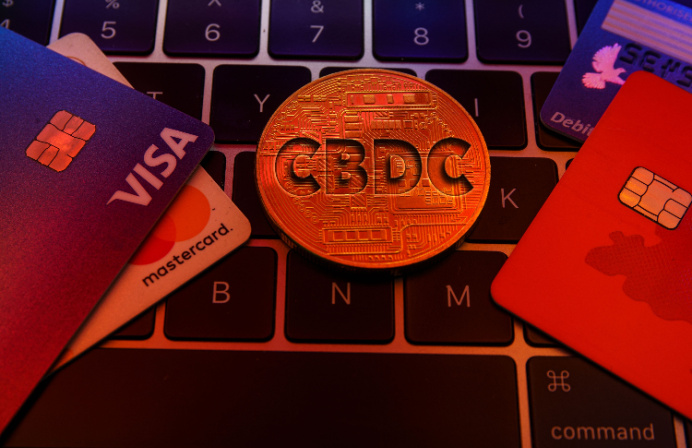
The future of money transactions in New Zealand must include physical cash, citizens say, with a record number of Kiwis voicing concerns about the lack of suitable digital payment alternatives currently in-market.
A public consultation conducted by the country’s banking and payments regulator the Reserve Bank of New Zealand (RBNZ) earlier this year examined the viability and acceptance of a digital cash, or central bank digital currency (CBDC), option. New Zealanders, a new RBNZ report reveals, expressed their scepticism concerning the introduction of a digital cash system and, overwhelmingly, demanded the ongoing availability of cash as a payment option.
The regulator is currently working on a digital cash/CBDC proposal to government, which it said would be “heavily informed by the views and needs of New Zealanders”, including the responses from this consultation.
The consultation, which ran from April to July this year, received the highest-ever response to any public consultation conducted by the regulator, according to the RBNZ, including more than 18,000 responses to the online public survey. Feedback was received from individuals, industry (including established financial services institutions and fintechs), charities, public agencies and other stakeholders.
Off the bat, more than 80 per cent of respondents disagreed with the RBNZ’s reasons for investigating a digital cash option for the country. Further, more than 70 per cent stated that the use of cash in a digital format was ‘not important’ to them.
Concern over the loss of access to banknotes and physical cash was high, with just 16 per cent willing to fully embrace a digital cash option. As well, nearly two-thirds (63.5 per cent) were worried that digital cash use by others might crowd out physical cash in the wider economy.
Much of the continuing demand for cash was attributed to a recognition that New Zealander’s needs were not being met by the current digital money and payments system being offered by private sector providers.
“Respondents valued faster, more direct, and cheaper payments as well as innovative features, with over 60 per cent of respondents wanting offline functionalities,” the report read. “Respondents also wanted better protection against frauds and scams and innovative features.
“Bank notes and coins are currently the only option for offline payments, with no digital or private sector alternative available.”
Transaction costs and consistent availability of the payments system were also key issues for many respondents.
“People also told us they want fast, direct, offline and secure ways to pay with low fees but today they only have these choices with banknotes and coins. People wanted features like the ability to make offline payments in an emergency (63 per cent), real-time payments (60 per cent), and it be free to use (60 per cent),” said RBNZ director of money and cash Ian Woolford.
A key concern for New Zealanders regarding digital cash – expressed by nine out of 10 respondents – was the potential for government control. Further, more than two-thirds of respondents lacked trust in the RBNZ to issue digital cash.
“Respondents were clearly concerned about the implications of digital cash for traceability, and by extension privacy and autonomy. Many feared digital cash will be used to facilitate unacceptable intrusion into their privacy or social control, even if it is not originally designed to do so.”
Individual respondents regarded the anonymity of physical cash as the “only way to eliminate the risks of future abuse”. Organisations, meanwhile, shared similar concerns and argued that providing an absolute guarantee against potential abuse is impossible.
“For them, the solution was to maintain the status quo, viewing the current forms of digital money as less risky, largely because they are privately managed,” the report read.
The RBNZ recognised privacy and control as key concerns for respondents – points the regulator said it “respects and agrees with”. However, it argues these elements can be retained in a digital cash system.
“We agree that privacy is an important consideration for digital cash, and remain committed to a privacy-centric design for digital cash.”
While traditional banks and financial institutions’ feedback was generally more supportive of the RBNZ’s ongoing investigation into digital cash, a notable number agreed that the case for its introduction was not strong.
“Several submissions highlighted the significant opportunities offered by wholesale digital cash (with cross-border use cases), while questioning the need for a retail version,” the RBNZ wrote.
However, respondents, particularly advocacy groups, did recognise key benefits of digital cash for disabled communities, who see current payment methods as “challenging, expensive and biased”.
Ultimately, however, Woolford concluded, consumers overwhelmingly demand an “assurance that cash will still be issued by the Reserve Bank and not reduced or replaced by digital cash”.
In response, the RBNZ said it is actively working to protect the role of physical cash in the country.
“Banknotes and coins will continue to be available, regardless of whether digital cash is introduced,” it said.
Woolford added: “We’ll keep issuing cash for as long as New Zealanders want to use it. We’re doing a lot of work to redesign the cash system, including helping retailers through community cash services trials next year in several rural communities lacking over-the-counter bank or ATM services.”
Insights garnered from the consultation will inform the RBNZ’s next stage of work and proposal for a digital cash system. An indicative business case is expected to be provided to Government by 2026.
The RBNZ flagged 2030 as the earliest a digital cash solution would be introduced.





